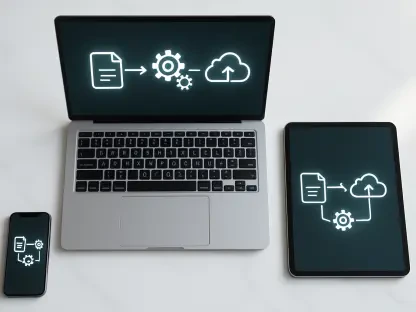As businesses navigate hybrid workforces and talent shortages, CRM systems are proving pivotal in reshaping talent acquisition strategies. Traditionally seen as vital to sales, CRM technology has been adapted to meet HR needs, serving as a cornerstone for recruitment, onboarding, and employee performance tracking. The integration of AI-driven analytics in CRM systems enables HR to treat candidates and employees more like “customers,” facilitating personalized interactions that boost satisfaction and retention. These systems are no longer confined to managing sales pipelines; they now hold the key to transforming HR into a strategic, data-driven function essential for competitive advantage.
AI Innovations in CRM Systems
Automating Recruitment Processes
The deployment of AI in CRM platforms has introduced a transformative shift in how HR departments operate. Tasks that once demanded hours of manual labor, such as resume screening, are now automated, allowing recruiters to focus on more strategic initiatives. AI algorithms efficiently analyze vast pools of candidate data, extracting relevant information and providing quick shortlist options, thereby significantly improving recruiter productivity. This automation extends further to employee sentiment analysis, offering insights into workforce morale and potential areas of improvement. The reduction in manual workloads allows human resources teams to channel their energy into optimizing engagement strategies instead.
Predictive Analytics and Personalized Onboarding
Another groundbreaking feature of AI-powered CRMs is predictive analytics, which provides HR professionals with forecasts that refine talent acquisition and retention strategies. Predictive models assess various employee metrics to foresee shifts in workforce needs, enabling proactive recruitment planning. Alongside analytics, CRMs offer more tailored onboarding experiences, adapting processes to individual employee preferences and learning styles. Personalized onboarding journeys ensure new hires are seamlessly integrated into company culture, reducing turnover rates significantly. As a result, organizations witness greater alignment between employee needs and organizational goals, fostering a communicative and collaborative environment.
Leading CRM Tools in HR
Distinct Features of Prominent Platforms
Several CRM systems have emerged as leaders in HR technology, each offering unique capabilities suited to varied organizational needs. HubSpot CRM stands out with a user-centric design that streamlines navigation, making it ideal for HR teams seeking simplicity in process management. BambooHR and Workday have gained recognition for their effective data integration, ensuring seamless information flow between HR and other departments like sales. This interoperability is essential for maintaining coherent employee records and driving strategic decision-making processes. Recruitment-focused CRMs like Recruit CRM specialize in automated follow-ups, catering specifically to the nuances of tracking talent acquisition initiatives for HR teams.
Challenges in Integration and Scalability
Despite these advancements, integration and scalability pose significant challenges in the adoption of CRM systems within HR frameworks. Many organizations struggle to seamlessly incorporate these technologies into existing HR ecosystems, leading to potential data silos that can hinder effective decision-making. Interfacing with popular productivity tools such as Microsoft Teams or Google Workspace is a critical factor to consider when evaluating CRM solutions, ensuring unified communication and collaboration across teams. Scalability especially becomes a concern for firms that experience rapid growth, as some CRMs may falter when handling expansive datasets. Careful consideration in selecting CRM tools is imperative for aligning technological capabilities with organizational strategy and capacity.
The Future of HR Driven by CRM Technology
Unified and Predictive HR Ecosystems
The future perspective of CRM technology within HR is marked by its potential to establish a unified and comprehensive approach to employee lifecycle management. Predictive and proactive strategies powered by CRM systems could become the norm, enabling HR departments to anticipate and respond to employee needs before they escalate into issues. Innovations such as mobile CRM enhancements promise greater flexibility, adapting to dynamic work environments and increasing employee satisfaction. With AI-driven personalization, organizations are set to experience elevated retention rates as tailored engagement approaches lead to more meaningful employment relationships and foster loyalty.
Strategic Reconfiguration of HR Roles
In the evolving landscape of hybrid workforces and talent shortages, CRM systems have become crucial in overhauling talent acquisition strategies. Originally designed for sales, CRM technology has now been modified to address HR needs, emerging as a core component for recruitment, onboarding, and tracking employee performance. By incorporating AI-driven analytics, CRM systems empower HR departments to approach candidates and employees with the same personalization given to customers, enhancing engagement and long-term retention. This shift in focus means these systems are no longer limited to sales pipeline management; they are now instrumental in transforming HR into a strategic, data-oriented operation crucial for maintaining a competitive edge. With the ability to harness detailed analytics, HR can fine-tune interactions and predict workforce trends, ultimately leading to a more cohesive and effective organization. Thus, CRM systems have evolved to not only support sales operations but also to redefine HR’s strategic role within businesses.









